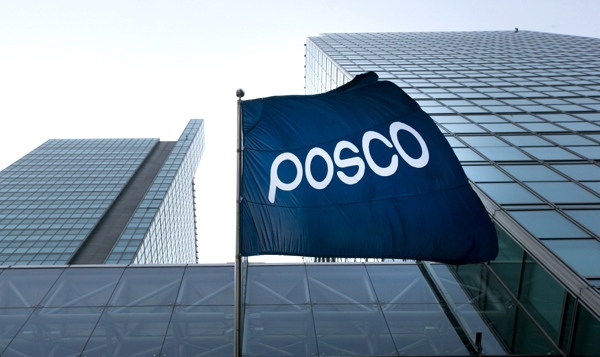EV materials
POSCO to build S.Korea’s first lithium plant by 2023
By Apr 15, 2021 (Gmt+09:00)
1
Min read
Most Read
LG Chem to sell water filter business to Glenwood PE for $692 million


Kyobo Life poised to buy Japan’s SBI Group-owned savings bank


KT&G eyes overseas M&A after rejecting activist fund's offer


StockX in merger talks with Naver’s online reseller Kream


Mirae Asset to be named Korea Post’s core real estate fund operator



South Korea’s leading steelmaker POSCO will build the country’s first lithium extraction factory in Gwangyang, 300 km south of Seoul, also home to the company’s second steel plant.
POSCO said on Apr. 14 that it will start the construction of the plant within the first half of 2021 to produce lithium hydroxide, a base compound for anode materials used in electric vehicle (EV) batteries.
Once constructed by 2023, the plant will annually produce 43,000 tons of lithium hydroxide, enough to be used by 1 million vehicles.
Lithium hydroxide and lithium carbonate are the two most common lithium compounds used as the chemical base for anode materials, which assist in the flow of electricity within battery cells.
While the industry had preferred lithium carbonate over lithium hydroxide, POSCO explains that the demand for lithium hydroxide is increasing: as auto manufacturers are racing to increase the mileage range per charge, anode materials with high nickel content above 80%, which use lithium hydroxide as a chemical base, are becoming more prevalent.
POSCO will supply its lithium hydroxide to battery material manufacturers such as its subsidiary POSCO Chemical Co. The plant will be using lithium ores from Australia in manufacturing the material.
Prior to its decision to build the large-scale lithium plant, POSCO has been developing a lithium extraction technology in partnership with the Research Institute of Industrial Science and Technology (RIST) since 2010 and operates a relevant test facility within its Gwangyang steel plant over the last two years.
The company will also be constructing another plant near its salt lake in Argentina, which will annually produce 25,000 tons of lithium compounds.
“We will continue our mid- and long-term investments to be able to annually produce a total of 220,000 tons of lithium compounds by 2023,” said a POSCO representative.
Write to Kyung-min Kang at kkm1026@hankyung.com
Daniel Cho edited this article.
More to Read
-
 EV battery materialsPOSCO's lithium reserves in Argentina soar to $31 bn
EV battery materialsPOSCO's lithium reserves in Argentina soar to $31 bnMar 04, 2021 (Gmt+09:00)
2 Min read
Comment 0
LOG IN


